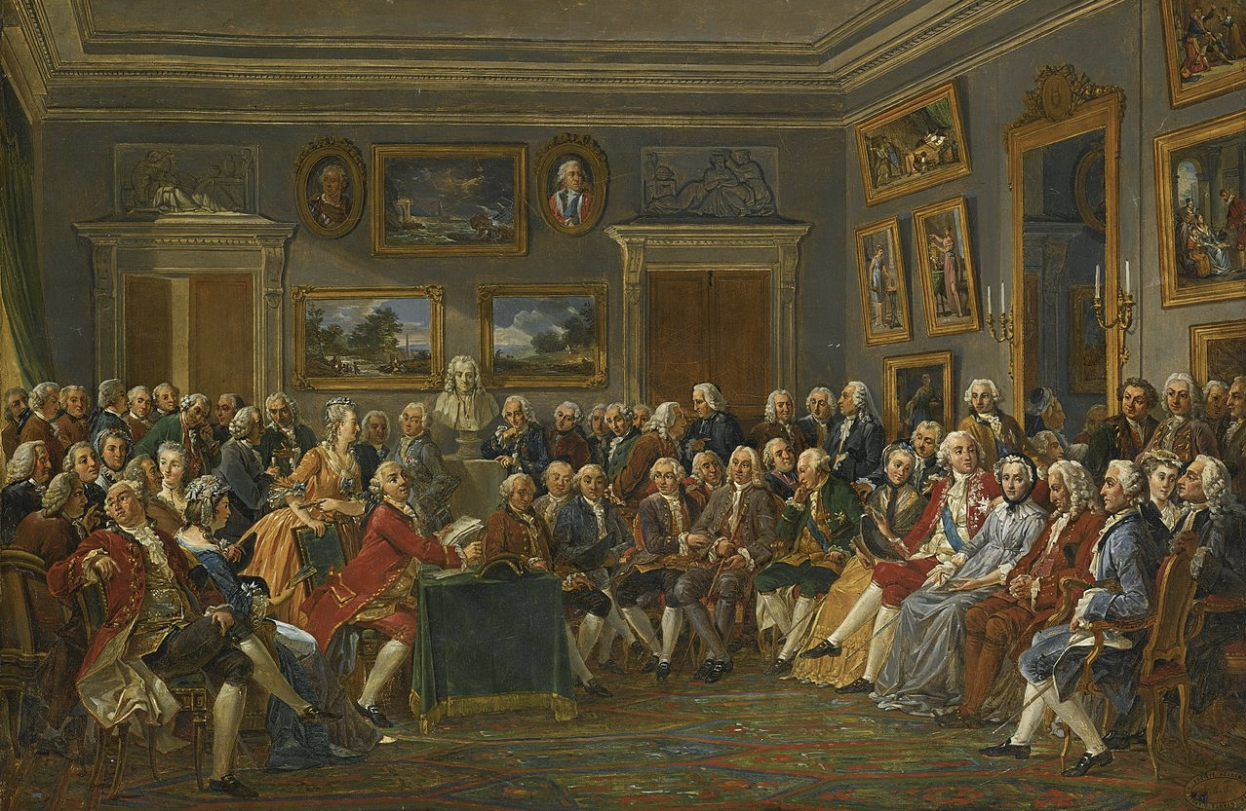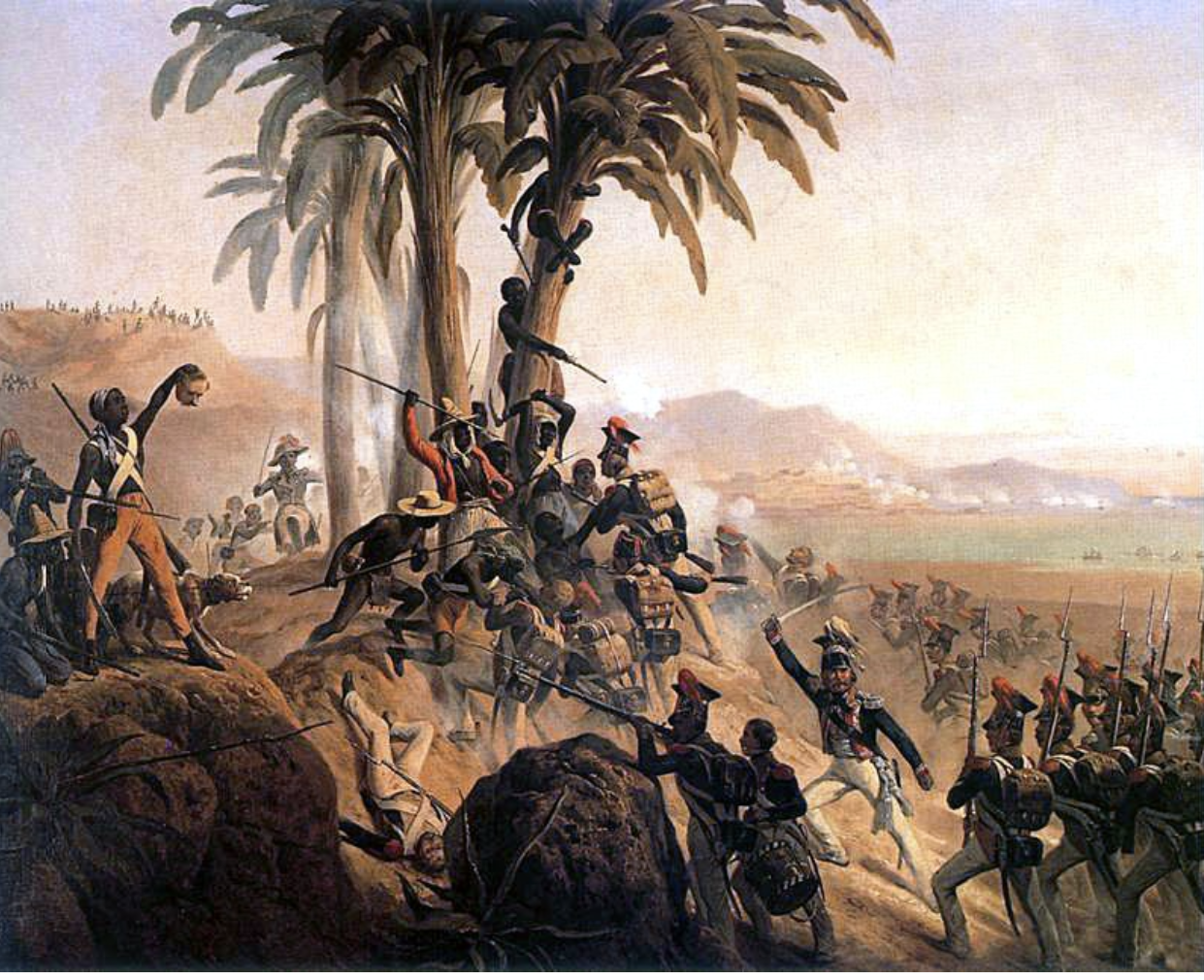Andrew Fultz
AP World History: Modern 🌍
577 resourcesSee Units
Unit 5 Overview: Revolutions
Welcome to the start of unit 5 of AP World History! Unit 5 is titled “Revolutions.” Subsequently, the unit outlines the development of these revolutions, the revolutions themselves, and the impacts the revolutions had on a global scale.
When we discuss “revolutions” in this unit, they mostly concern the Atlantic Revolutions. These include the Haitian Revolution, South American Revolutions, American Revolution, and French Revolution. However, global philosophical movements in this period, specifically those centering around the Enlightenment and industrialization, will spur revolutions around the world in many different forms.
Contextual the Unit
In the last unit, we discussed the changing global economy after the Columbian Exchange, such as mercantile maritime empires and the triangular trade system between the Americas, Africa, and Europe. These economic systems encouraged colonization, hence why North America became a colony haven for European powers. These colonies, and the home countries, in some cases, became a boiling pot for rapid change.
During the 17th and 18th centuries, new philosophies and political ideas began to spread in the Enlightenment, a period of philosophical, economic, and political change primarily in Europe. Philosophers such as John Locke, Voltaire, Jean-Jacques Rousseau, and many others developed ideas as a reaction to mercantilism and later industrialization. These included the ideas of natural rights to life, liberty, property, religious tolerance, relationships between rulers and subjects, branches of government, and many others that would help create the philosophical backbone for many of the revolutions we will discuss.

As wealth expanded and demand for goods reached an all-time high, new technology led to the Industrial Revolution. In World History, we study two major industrial revolutions. The first industrial revolution involved the transition from a cottage economy to one based around steam-powered mills. Industrialization began in Great Britain and spread through Europe for numerous reasons that we’ll discuss in a bit. The second industrial revolution builds upon the first and involves the development of oil technology, steel, electricity, and chemicals. Industrialization is a turning point that many consider to be the biggest since the Agricultural Revolution in roughly 10000 BCE. Once the effects of industrialization met the new ideas established through the Enlightenment, the combination of progress pushed much of the world over the edge in terms of revolutionary ideas and progress.
The Big Ideas Behind This Unit
Revolutions
The first revolution, and the one you are most likely most familiar with, is the American Revolution. This revolution began as a result of independence being a desire of colonists in the North American colonies of Great Britain. After unfair taxation following the Seven Years War, colonists, specifically those in the Northeast, staged a rebellion that eventually led to a war ending in 1783 with an independent United States.
After the American Revolution, the French Revolution began. Debt from the Seven Years War, along with involvement in the American Revolution, crippled France’s economy and exacerbated existing social strata. The French Revolution primarily revolved around lower classes rising against the monarchy due to unfair political policies and economic inequality. The French Revolution follows multiple phases over almost 70 years, but for AP World, the most important aspects to know are those revolving around causes and effects on a global scale.
The Haitian Revolution stands out as the only successful slave revolt in world history. Led by Toussaint Louverture, the Haitian Revolution began after slaves revolted in Haiti in the early 1800s. After killing many of their masters, the slaves declared an independent Haiti.

Latin American Revolutions also occurred during this unit. Creoles, Americans born to Peninsulares, rose against the Spanish government that favored peninsulares and discriminated against Creoles. Led by Simon Bolivar, these revolutions helped lead to newly independent states in Latin America.
Many of these revolutions also have important documents that you should know. For example, the American Revolution is famous for its Declaration of Independence; the French Revolution has its Declaration of the Rights of Man and the Citizen, and more from Latin America.
National movements also began during this time period as new ethnic and national identities began to form. The unification of Italy under Cavour, Mazzini, and Garibaldi and Germany under Otto Von Bismarck are common examples of national movements.
The Industrial Revolution
Among a time of Atlantic Revolutions and nationalist movements, the growth of industrial technology marks a transitional time into 1750-1900. As discussed earlier, the first industrial revolution marked a shift from a cottage industry to steam-run factories. This change fundamentally shifted production and transportation methods for goods all around the world. This unit and unit 6 will discuss many of the social, economic, and political changes as a result of the industrial revolution. Industrialization is a turning point that can oftentimes be used as contextualization for essays during this time period because of the sheer impact of the event on humanity.
Conclusion
Unit 5 is an incredibly important unit in AP World. As the course rounds out its final two time periods, revolutions frame the developments in the future. The modern era began primarily due to the advent of industrial technology. Changes in manufacturing, shipping, and the production of goods turned the world upside down and studying these changes is incredibly important to unit 5 and 6! Good luck!
Main Events
1762: Rousseau publishes the Social Contract
1765: James Watt invents steam engine
1776: American Revolution begins
1789: French Revolution begins
1801: Haitian Revolution begins
1815: Latin American Revolutions begin
1848: Seneca Falls Convention organized by feminists & abolitionists
1868: Meiji Restoration
Major Trends
- Industrialization → consumer goods more affordable and available
- Railroads increased circulation of goods, people, and ideas
- States could industrialize through private investment (Britain, US) or state investment (Russia, Japan)
- Demand for raw materials increased, new sources acquired by steamship
- Capitalism prevailed in Western Europe, but made life hard for many
- Harsh working conditions led to labor unions for collective power
- The rich got richer and the poor got poorer
- Women gained economic power with opportunities in factories
- People organized movements to advocate for government protections
- Voting rights expanded as a result of organized progressive movements
Review Time
After studying on your own, invite some friends to a study with me online session to discuss the main points of the unit and review anything that you may be confused on. It is a great way to for everyone to feel supported while studying!
Browse Study Guides By Unit
🐎Unit 1 – The Global Tapestry, 1200-1450
🐫Unit 2 – Networks of Exchange, 1200-1450
🕌Unit 3 – Land-Based Empires, 1450-1750
🍕Unit 4 – Transoceanic Interactions, 1450-1750
✊🏽Unit 5 – Revolutions, 1750-1900
🚂Unit 6 – Consequences of Industrialization, 1750-1900
💣Unit 7 – Global Conflict, 1900-Present
🥶Unit 8 – Cold War & Decolonization, 1900-Present
✈️Unit 9 – Globalization, 1900-Present
✏️Frequently Asked Questions
🚀Thematic Guides
🗺Regional Guides
🤓Historical Thinking Skills
🧐 Multiple Choice Questions (MCQ)
📋Short Answer Questions (SAQ)
📝Long Essay Questions (LEQ)
📑Document Based Questions (DBQ)

Fiveable
Resources
© 2023 Fiveable Inc. All rights reserved.